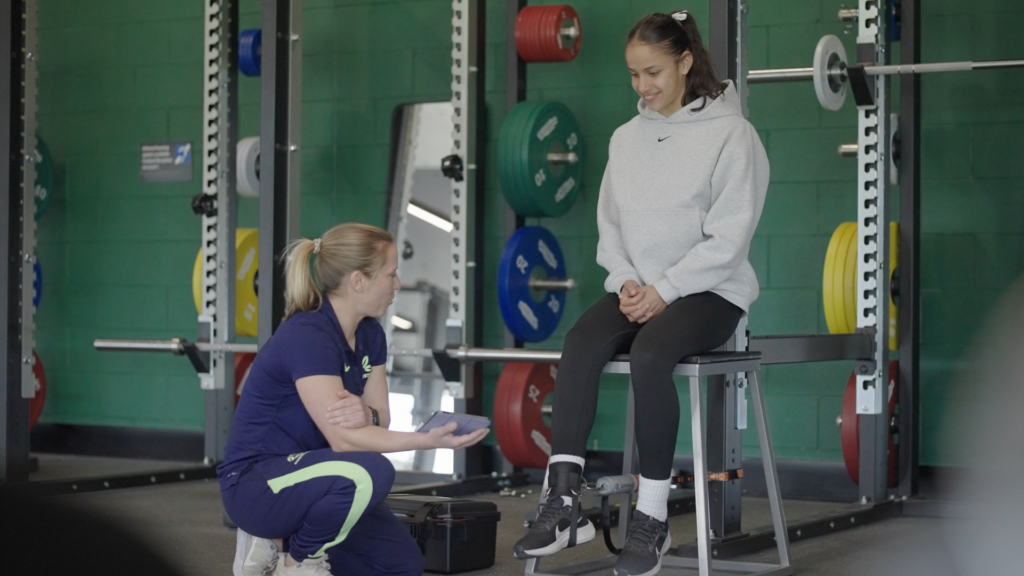For professional athletes, injuries can have a devastating impact on their career. It can be tough to ever come back.
But Stella Veith’s philosophy as a physiotherapist is to always look on the bright side of things. And yes – according to Veith, there are even bright sides to injuries.
“I think we can always learn from challenges, and I think any injury is just a challenge we can learn from, and do other things we maybe wouldn’t get the chance if that injury wasn’t there,” Veith said.
Veith has been the head physiotherapist for the CommBank Junior Matildas (U17 Women’s National Team) for the past four years. Having just wrapped up her PhD studies investigating injury patterns and injury reduction strategies in adolescent footballers, she is now taking part in Football Australia’s OUR GAME: Play Unstoppable Mentorship Program as a mentor for the next generation.
For Veith, the Play Unstoppable program is all about following a passion – whatever that passion may be.
“You can find an area where you can excel, and we can all come together – to connect on the football pitch, or beside it,” Veith said.
The physiotherapist has been surrounded by football all her life. When she was ten, her very first football coach was a physiotherapist herself.
“That got me interested in it,” Veith told Matildas junior Talia Younis, host of the OUR GAME: Play Unstoppable series.
“I think now, it’s just great watching the Matildas or other teams, and you see those female physicians and doctors running onto the pitch, I think that’s awesome.”

As the head physio with the CommBank Junior Matildas, Veith’s role includes monitoring the well-being of players, dealing with injuries that arise, as well as communicating with athletes, coaching staff, sports scientists and doctors.
At the crux of her work, Veith said, is education.
“I’m educating athletes and my patients that they can self-manage their injuries as much as possible, and always looking at the positive side of an injury, looking at what they can do compared to what they can’t,” Veith said.
As interest and investment in women’s sport is on the rise, the sports industry is in dire need for research into injury prevention strategies for women’s sport.
A study published in the Journal of Science and Medicine in Sport in July this year found players in the women’s South Australian National Football League were at greater risk for concussion and ACLs than male athletes in the AFL.
Meanwhile, last year’s FIFA Women’s World Cup hosted by Australia saw at least 25 players sidelined due to ACL injuries.
Veith said sport science is “super important” in the development and growth of women’s football.
“If we don’t measure or monitor what women are doing, then we can’t see the growth of it,” Veith said.
“That saying is out there that ‘women aren’t just small men’. So we need to find out what specifically we can monitor so that we don’t just take everything that we know from the men in terms of how we train and recover for example, but that we actually build that knowledge base through research and sport science of how we best can support players.”
It was tough to get into the industry, but Veith found it easy to work hard: she had a real passion for football, and physiotherapy. What was more challenging for her, however, was taking opportunities and putting herself out there.
“Very often I say ‘no’ in my head first, if I know there is something scary coming up, something new,” Veith said.
Eventually, Veith learned to say “yes”, getting her to where she is today. She encourages young women and girls to consider a career in sports science.
“I love football, and now I think it’s just a great way to be involved in the game, but also help fantastic athletes and working in that team environment,” she said.

